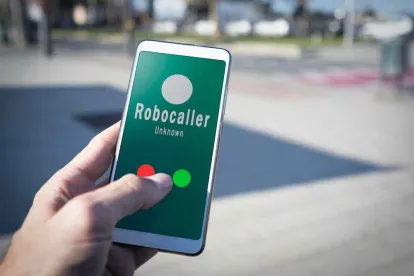In October of 2021, then Acting Federal Communications Commission (FCC) Chairwoman Jessica Rosenworcel circulated a proposal among her Commissioner colleagues to address the problem of illegal robotexts invading consumer privacy. At the time, she noted that the FCC has seen “a rise in scammers trying to take advantage of our trust of text messages by sending bogus robotexts that try to trick consumers to share sensitive information or click on malicious links. It’s time we take steps to confront this latest wave of fraud and identify how mobile carriers can block these automated messages before they have the opportunity to cause any harm.”
In July of this year, the FCC’s Consumer and Government Affairs Bureau issued a “Consumer Alert,” warning of the rising threat of bogus texting. The Alert provided “Consumer Tips” to identify and avoid being bothered by possible scam messages.
Now, roughly a year after originally proposed, the agency has approved a Notice of Proposed Rulemaking (NPRM) that would set new rules to “fight back against malicious robotext campaigns.”
The NPRM asks for public comment on a proposal that, among other things, would require “mobile wireless providers to block texts, at the network level, that purport to be from invalid, unallocated, or unused numbers, and numbers on a Do-Not-Originate (DNO) list.” The FCC also seeks suggestions on “other actions the Commission might take to address illegal texts, including enhanced consumer education.” To facilitate the proposed blocking for certain types of texts, the NPRM asks whether the rules should “require providers to implement caller ID authentication for text messages.”
The FCC received 15,300 consumer complaints about unwanted texts in 2021 and 8,500 such complaints through June 30, 2022. This NPRM labels the numbers, although lower than complaints about unwanted calls, as evidence of an “emerging problem,” noting “unwanted text messages invade consumer privacy, and are vehicles for consumer fraud and identity theft.”
The agency has set a 45-day comment period on the proposal, to start 30 days after publication of summary in the Federal Register.




 />i
/>i


